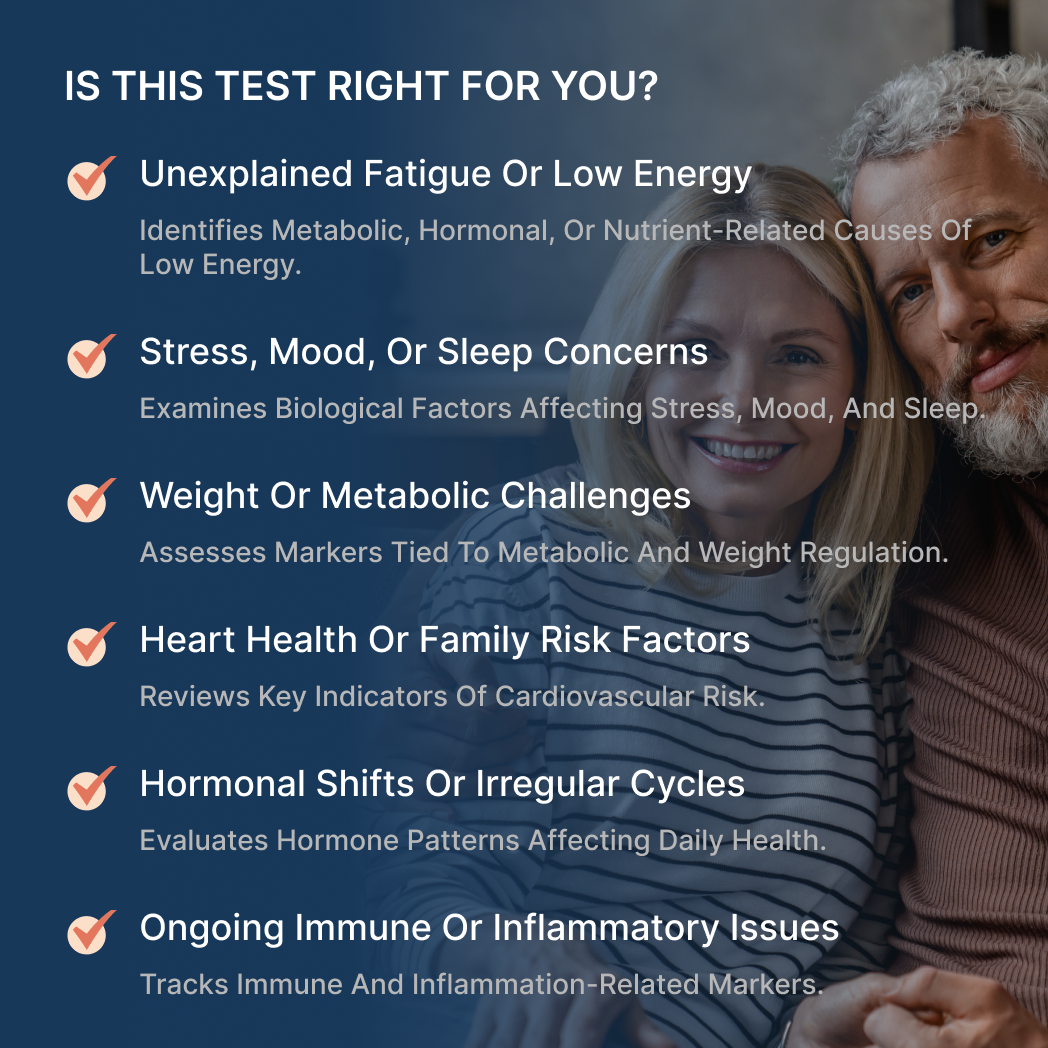Foundation Zoomer gives you a grounded starting point for understanding your whole-body health. It shows how key systems including your heart, metabolism, hormones, and immune response relate to one another and where imbalances may be building. These insights help shape a roadmap that you and your provider can use to guide care with more intention and less guesswork.
Blood health affects how well your body carries oxygen, fights infections, and repairs tissues. Imbalances in red cells, white cells, or platelets can contribute to fatigue, immune changes, or slow recovery.
Precision Testing
Measures red cell quality, white cell patterns, platelets, and reticulocyte markers to show how well your blood is functioning.
Personalized Solutions
Targeted nutrition, iron support, inflammation reduction, and follow-up testing to improve energy and overall vitality.













.png?width=835&height=831&name=Screenshot%202025-09-05%20at%2016.11.51%201%20(1).png)
.png?width=835&height=828&name=Screenshot%202025-09-05%20at%2016.11.51%201%20(2).png)
.png?width=834&height=828&name=Screenshot%202025-09-05%20at%2016.11.51%201%20(3).png)
.png?width=835&height=828&name=Screenshot%202025-09-05%20at%2016.11.51%201%20(4).png)


.png?width=457&height=457&name=Step%20Images%20(1).png)


.png?width=900&height=735&name=image%20859%20(1).png)










